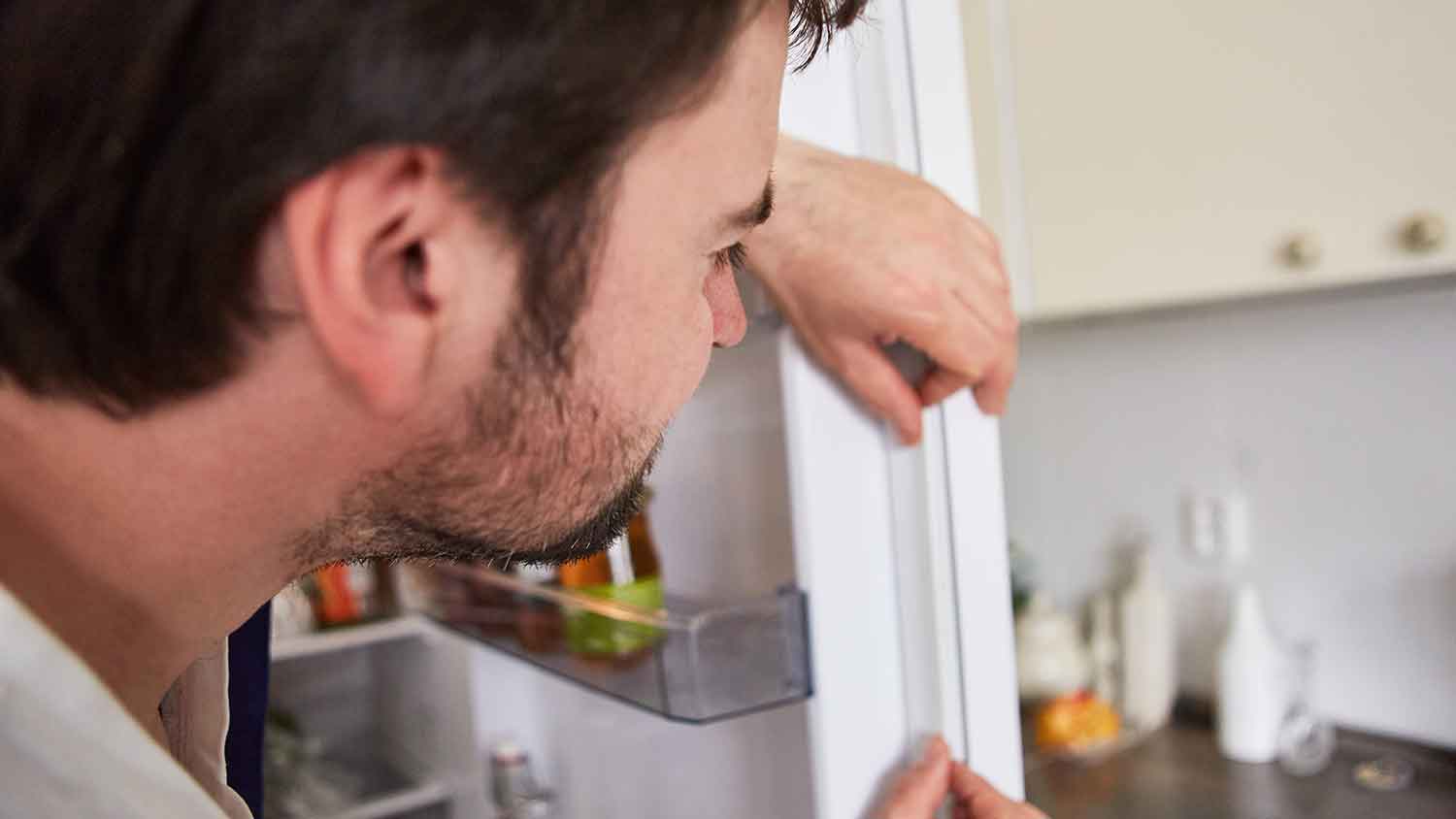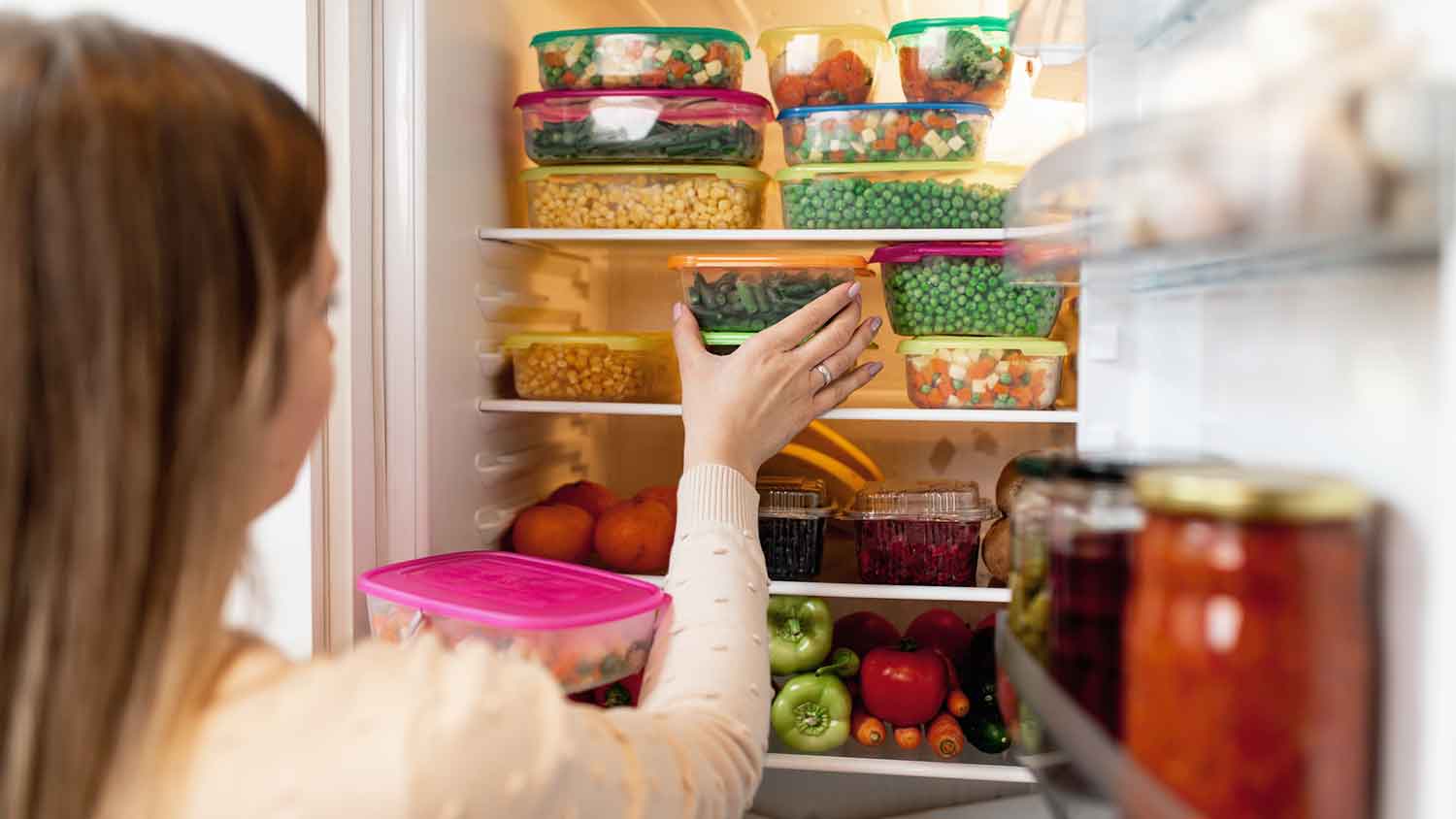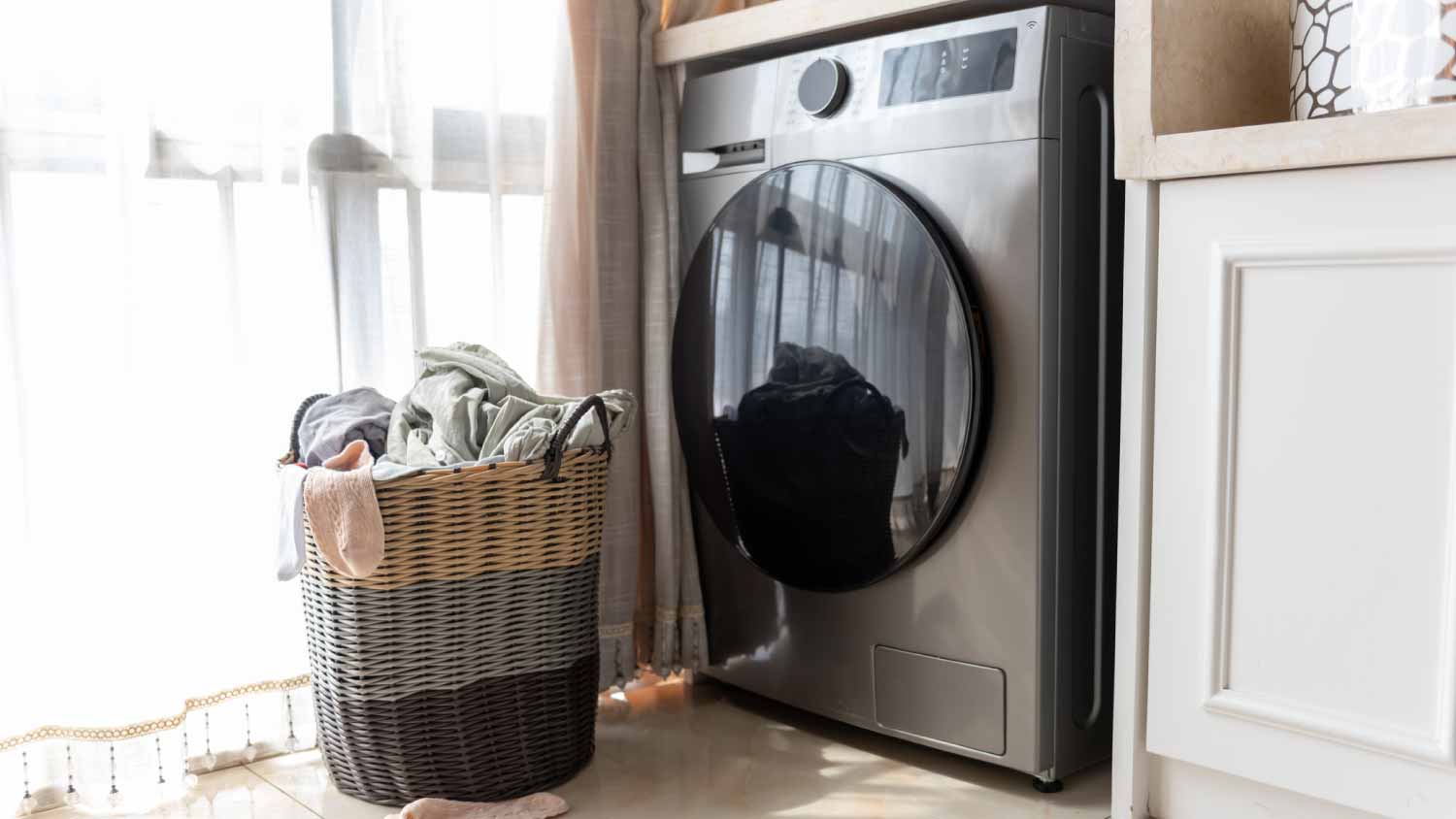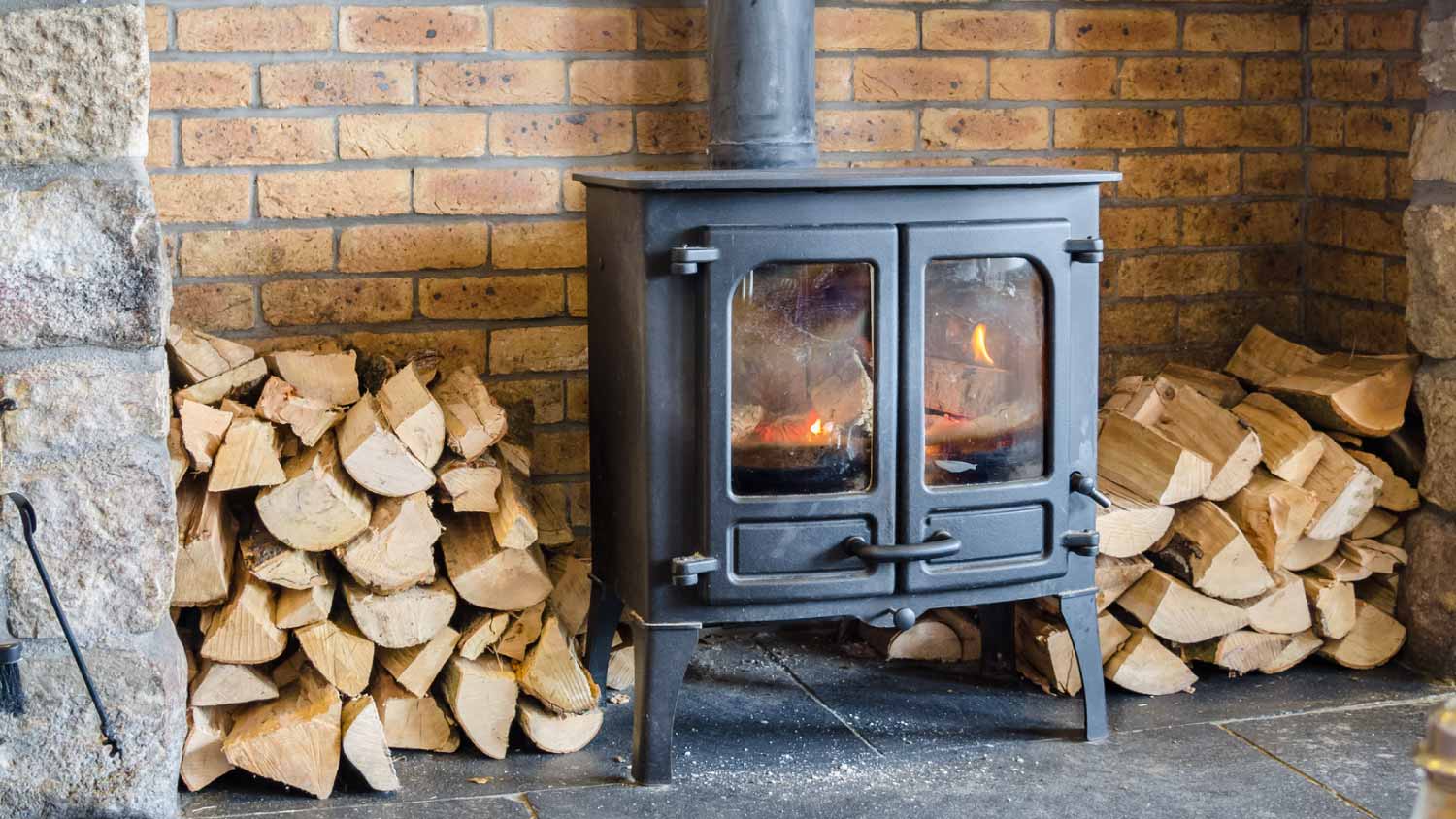Key Reasons Why Your Fridge Freezes Everything
Overcooling your food can lead to a lot of waste and bad-tasting groceries, but fixing freezing in a fridge is often easier than it sounds


Sometimes the refrigerator itself is not the problem—your food arrangement is.
Always confirm your thermostat is set to the right temperature.
Some issues, like faulty temperature sensors, require professional intervention.
Are you frustrated by discovering frozen lettuce and solid milk in your refrigerator? Food freezing in the fridge is not only an annoyance but can also result in spoilage and waste of groceries. But why is your fridge freezing everything?
Let’s take a look at the possible culprits behind this problematic issue, define the key parts of your refrigerator that could be causing the freezing, and provide you with simple yet effective steps to address and rectify the freezing issue.
Refrigerator repairs can be complicated and hazardous to one's health. If you don't have prior experience with this project, contact a local pro to ensure the job is completed safely.
1. Thermostat Set Too Low
Your fridge's thermostat serves as the commander of refrigerator temperature regulation. If it's set to an excessively low level, it can turn your refrigerator into a chilly icebox, causing your food items to freeze unexpectedly.
Signs: Keep an eye out for items at the back of the fridge that seem suspiciously ice-covered or if your once-liquid drinks have magically transformed into frozen slush.
Severity: While it might not be a full-blown crisis, frozen food can lose its quality, leading to potential wastage.
Next Steps: The good news is this issue is super easy to fix on your own. It's time to play with the thermostat settings. Adjust it to a slightly higher temperature and closely monitor whether your food still insists on becoming frosty.
2. Blocked Air Vents
The air vents in your fridge are like the arteries of the cooling system, ensuring an even distribution of cold air. However, if they get clogged up by food items or other debris, the circulation can be compromised, leading to uneven cooling and potential freezing.
Signs: Pay attention to temperature variations within the fridge. If certain areas feel like an Arctic tundra while others remain relatively balmy, your air vents might be the culprit.
Severity: This issue's severity is on the lower to moderate side. While it might not spell catastrophe, it can create pockets of uneven temperatures, possibly causing some food items to freeze.
Next steps: Again—this is another straightforward issue to fix. Start rearranging those groceries. Make sure nothing is obstructing the air vents to ensure that the cool air can flow freely.
3. Damaged Door Seals

The door seals, also known as gaskets, serve as the gatekeepers of your fridge, preventing warm air from infiltrating the cold haven. If these seals are damaged or not sealing properly, temperature fluctuations can occur, leading to freezing.
Signs: Frost forming around the edges of the door or sporadic temperature changes within the fridge can be indicative of damaged seals.
Severity: This issue is moderately severe. While it might not be an immediate emergency, fluctuating temperatures can accelerate food spoilage and increase energy consumption.
Next Steps: Luckily, it’s easy to fix the seal on a refrigerator, if you’ve got a moderate level of DIY experience around the house. Start by giving those door seals a thorough check-up. If you find any damage, consider replacing them to ensure a tight seal and consistent temperatures. You can purchase replacements through your refrigerator’s manufacturer.
4. Evaporator Fan Issues
The refrigerator's evaporator fan is the conductor of coolness, circulating cold air throughout the fridge. A malfunction in this fan can disrupt the airflow, leading to freezing in certain areas.
Signs: If you notice a pattern of items toward the back of the fridge freezing, coupled with unusual noises, the evaporator fan might be acting up.
Severity: This issue is highly severe. Frozen food can quickly deteriorate in quality and lead to unnecessary waste.
Next Steps: It's time to bring in the experts. Reach out to a professional refrigerator repair technician near you to diagnose and address any issues with the evaporator fan. You can expect to spend $100 to $200 on refrigerator repair costs.
5. Incorrect Food Placement
Sometimes, it's all about where you put things. Items placed too close to cooling sources or air vents can get a little too chilly for comfort.
Signs: If your food items mysteriously freeze at the back or near air vents, it's likely due to their close proximity to cold sources.
Severity: The severity of this issue is relatively low. It's more of a minor inconvenience than a major crisis.
Next steps: A little rearranging can go a long way. Be mindful of where you place your items and ensure they're not in direct contact with the cooling elements.
6. Overcrowded Fridge

An overcrowded fridge can be a double-edged sword. While it might seem like you're maximizing space, excessive items can block airflow, leading to cold spots and food freezing. Interestingly, an overcrowded freezer is a major reason your freezer might not be freezing.
Signs: If you're noticing temperature inconsistencies within the fridge, it's time to assess whether overcrowding might be the cause.
Severity: While it might not be a major problem, it can lead to uneven food quality. However, this is one of the easiest fixes you can make, so at the end of the day, this issue isn’t all that severe.
Next steps: Decluttering your fridge can make a significant difference. Ensure that there's enough space for proper airflow to maintain consistent temperatures.
7. Refrigerator Placement
The location of your refrigerator can affect its internal temperature. If it's situated too close to heat sources like ovens or exposed to direct sunlight, it can lead to colder internal conditions.
Signs: If your food items are freezing even when the thermostat is set to a normal level, the external environment might be to blame.
Severity: The severity of this issue is relatively low to moderate, depending on how flexible your kitchen design is. External factors can influence internal temperature control.
Next steps: Consider relocating your refrigerator to a cooler spot, if possible, away from heat sources and direct sunlight. Can’t relocate the fridge by yourself? Refrigerator installation costs between $150 and $250. You’ll need to hire a local plumber or even simply a handyperson to facilitate the relocation.
8. Faulty Temperature Sensor
The temperature sensor in your refrigerator gauges the internal temperature and triggers the cooling cycle. If it's faulty, it can result in improper cooling.
Signs: Look for uneven cooling patterns within the fridge, which can indicate an inaccurate temperature sensor.
Severity: This issue's severity ranges from moderate to high. Inaccurate temperature control can significantly impact food quality.
Next Steps: When in doubt, consult a professional technician. They can diagnose and replace the faulty temperature sensor, ensuring proper temperature regulation.
Still Having Problems with Your Fridge?
After you’ve tried all these various solutions to a fridge that is freezing everything, you may need to call in a professional. There are several complex parts of a refrigerator that can cause issues, so calling in a nearby refrigerator repair service could come in handy. They’re trained to understand these more complicated components—and how to fix them.
In many cases, a refrigerator technician will be able to fix the problem for a minimal cost. On average, refrigerator repair costs $200 to $300 for common issues, though repairing some components, such as a refrigerator door, control board, or freezer, can drive up costs.
If your refrigerator is still under warranty, you may not pay a dime for refrigerator repair. But if your refrigerator is nearing the end of its life (fridges last between 10 and 20 years, with regular refrigerator maintenance helping to keep them running efficiently longer), you may find that it makes more sense to skip the fridge repairs and just purchase a new model—since you’ll likely need to in a year or so anyway.
A new fridge costs $900 to $8,000, depending on the size and brand of the model (smart fridges cost significantly more). A contractor can help you weigh the cons of repairing vs. replacing your refrigerator before you go this route.



.jpg?impolicy=leadImage)

- Appliance Repair Companies
- Washing Machine Repair
- Dryer Repair
- Refrigerator Repair
- Dishwasher Repair
- Oven Repair
- Wood & Pellet Stove Repair
- Freezer Repair Services
- Wood Stove Services
- Gas Stove Repair
- Emergency Appliance Repair Companies
- Ice Maker Repair
- Gas Appliance Repair
- GE Appliance Repair
- GE Refrigerator Repair
- GE Dryer Repair
- GE Dishwasher Repair
- GE Washing Machine Repair
- Samsung Appliance Repair
- Samsung Refrigerator Repair
- Samsung Dryer Repair
- Samsung Washer Repair
- Samsung Dishwasher Repair
- Samsung Oven Repair
- Whirlpool Repair
- Whirlpool Refrigerator Repair
- Whirlpool Washer Repair
- Whirlpool Dryer Repair
- Whirlpool Oven Repair
- Maytag Appliance Repair
- Maytag Refrigerator Repair
- Maytag Washer Repair
- Maytag Dryer Repair
- Maytag Dishwasher Repair
- Kitchenaid Appliance Repair
- Kitchenaid Oven Repair
- Kitchenaid Refrigerator Repair
- Kenmore Appliance Repair
- Kenmore Dishwasher Repair
- Kenmore Washer Repair
- Kenmore Dryer Repair
- LG Refrigerator Repair
- Bosch Appliance Repair
- Kenmore Refrigerator Repair
- LG Appliance Repair Services
- GE Microwave Repair
- Electrolux Appliance Repair
- Electrolux Washer Repair
- Kitchenaid Dishwasher Repair Services
- Wood Stove Inspection
- Dishwasher Installation
- Trash Compactor Repair
- 11 Signs Your Refrigerator is Dying and Potential Solutions
- Top 12 Refrigerator Maintenance Tips
- Why is My Refrigerator Not Cooling? Key Reasons
- 10 Ways to Make Your Refrigerator More Efficient
- Refrigerator Constantly Running: Reasons and Solutions
- Why Is My Fridge Leaking?
- How to Properly Ship a Refrigerator When You Move
- Who Fixes Refrigerators? Who to Call to Fix Your Fridge
- How to Make a Fridge Smell Better: 8 Methods to Try
- 10 Steps to a Well-Maintained Fridge and Freezer
















